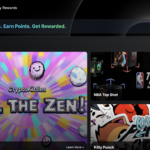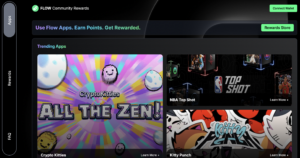Introduction
The entertainment industry, encompassing film, music, television, and more, has always been quick to adapt to new technologies. However, the past two decades have witnessed an unprecedented transformation. This article will delve into the profound impact of technology on the entertainment sector, exploring how it has altered the way we experience, produce, and interact with entertainment.
The Streaming Revolution
A cornerstone of the digital revolution in entertainment is the rise of streaming services. Platforms like Netflix, Amazon Prime Video, and Disney+ have revolutionized how we consume content. Gone are the days of scheduling our lives around TV programming. Instead, viewers now have the power to choose what, when, and where they watch.
Streaming has not only changed the viewing experience but also how content is produced. With the rise of original content on streaming platforms, creators have more freedom to experiment and take risks. This has led to a golden age of television with groundbreaking shows like “Stranger Things” and “The Crown.”
Original Content: With the rise of original content on streaming platforms, creators have more freedom to experiment and take risks. This has led to a golden age of television with groundbreaking shows like “Stranger Things” and “The Crown.”

Virtual Reality and Immersive Experiences
Virtual reality (VR) has taken entertainment to the next level, offering immersive experiences that blur the line between reality and fiction. VR gaming, in particular, has gained immense popularity. Here are some notable developments in VR entertainment:
- Gaming: Games like “Beat Saber” and “Half-Life: Alyx” transport players to entirely new worlds, engaging their senses in ways traditional gaming could not.
- Cinema: Some theaters now offer VR experiences that allow viewers to step inside the movie.
- Music: Musicians are exploring VR concerts, providing fans with a front-row seat from the comfort of their homes.

Artificial Intelligence in Content Creation
Artificial intelligence (AI) has become a valuable tool in content creation. From writing algorithms that generate news articles to AI-generated music and artwork, technology is influencing the creative process. AI can analyze vast amounts of data to predict audience preferences and trends, helping studios and artists tailor their work to a broader audience.
For instance, streaming platforms like Spotify use AI to curate personalized playlists based on listening history, while movie studios utilize AI to predict box office success. This data-driven approach has the potential to reshape how entertainment is produced and marketed.

The Role of Social Media
Social media has become an integral part of the entertainment industry, with platforms like Instagram, Twitter, and TikTok providing artists with a direct connection to their fans. Celebrities use social media to share behind-the-scenes glimpses of their lives, promote their work, and engage with followers.
Moreover, fan engagement has become a driving force in the industry. Fan communities on platforms like Reddit and Discord discuss, dissect, and celebrate their favorite shows, movies, and artists. This sense of community amplifies the impact of entertainment and keeps fans engaged long after the credits roll.

Challenges and Concerns
While technology has brought numerous benefits to the entertainment industry, it has also raised concerns. Here are some of the challenges:
- Privacy Issues: Privacy concerns have grown as entertainment platforms collect and analyze user data to deliver personalized experiences.
- Piracy: Piracy remains a persistent problem, threatening the revenue of content creators and distributors.
- Job Displacement: There are fears that automation and AI could replace jobs in the industry, from scriptwriting to post-production.
The Future of Entertainment
As we look ahead, it’s clear that technology will continue to shape the entertainment industry. The boundaries between traditional and digital media will blur further, and new forms of storytelling will emerge. Augmented reality (AR) is on the horizon, promising to integrate digital elements into the physical world. As AR developer Alex Martinez envisions, “AR has the potential to revolutionize theme parks, live events, and even everyday experiences like shopping.”











